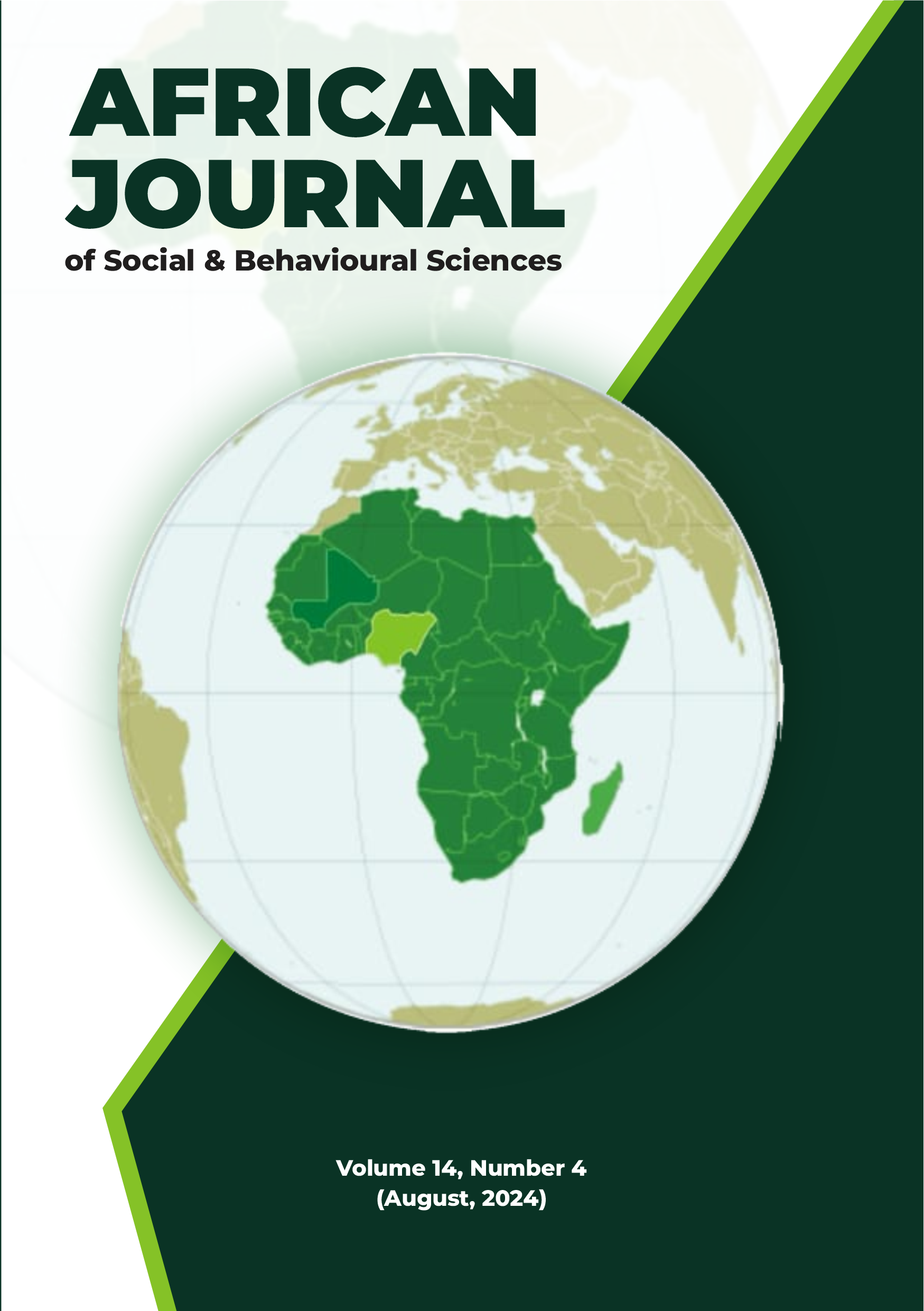COMPARATIVE ANALYSIS OF POLITICAL GODFATHERISM AND ELECTORAL CREDIBILITY IN NIGERIA
EVIDENCE FROM THE 2015 AND 2019 GUBERNATORIAL ELECTIONS IN BENUE STATE
Keywords:
Political Patronage, Political Godfatherism, Electoral Integrity, Electoral Credibility, Gubernatorial ElectionAbstract
This paper offers a comparative analysis of the phenomenon of political godfatherism and its impact on electoral credibility in Nigeria, focusing on the 2015 and 2019 gubernatorial elections in Benue State. The study aims to achieve three objectives: identifying the activities of political godfathers, uncovering the causes of godfatherism, and examining its impact on electoral credibility during the 2015 and 2019 gubernatorial elections in Benue State. To accomplish these objectives, the paper employs the Clientelism Theory as an analytical framework and collects data from primary sources, such as Key Informant Interview (KII), and secondary sources, including books, journals, and web-based materials. The data gathered from the Key Informant Interviews (KII) were analysed using atlas. t software. The findings reveal that the activities of political godfathers manifest in various forms, including the sponsorship and endorsement of candidates, networking, and vote-buying. Additionally, the study identifies the primary causes of godfatherism as the funding of elections and the struggle for state resources. The impacts of godfatherism are found to include influencing electoral outcomes, accessing state resources, underdevelopment, poor governance, clashes of interest, and the neglect or marginalization of certain zones within the state. The paper concludes that political godfatherism in Benue State undermines electoral credibility by promoting undemocratic practices and poor governance. Based on these findings, the paper recommends several measures: strengthening electoral laws, encouraging widespread political education, promoting internal democracy within political parties, implementing policies that foster good governance and accountability, diversifying the state economy, ensuring equity and justice in the allocation of resources and development projects, and intensifying anti-corruption efforts to dismantle the networks of influence and patronage that perpetuate godfatherism.


